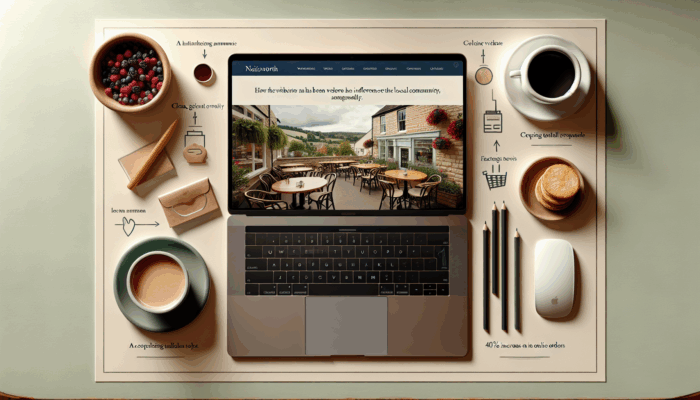Discover the Comprehensive Range of Costs Associated with Building a Website: A Comparison of DIY and Professional Solutions
Determining the Cost for Website Creation: As you embark on the exciting venture of establishing a website, a pivotal question arises: “What will be the financial investment?” The answer varies widely, influenced by several critical factors, including the type of website you intend to develop, the level of customization desired, and the specific functionality needed. This article aims to thoroughly analyze the costs related to various categories of websites, from DIY approaches to professional builds. Our goal is to empower you with the knowledge necessary to make a well-informed decision that aligns perfectly with your business aspirations and objectives.
Essential Terminology to Understand When Evaluating Website Development Costs

Before diving into the detailed specifics of website costs, it is crucial to familiarize yourself with some key terms that will enhance your understanding of this subject:
- Content Management System (CMS): This software is the backbone of your website, enabling you to easily update content — including text and images — without requiring extensive technical knowledge.
- Responsive Design: This feature ensures that your website automatically adapts its layout based on the device being used, whether it’s a mobile phone, tablet, or desktop computer, significantly enhancing the overall user experience and accessibility.
- Search Engine Optimisation (SEO): This process involves making strategic adjustments to your website to boost its visibility on major search engines such as Google and Bing, thereby attracting a higher volume of organic traffic.
Evaluating Different Types of Websites and Their Associated Costs
Creating Affordable DIY Websites for Personal and Small Business Use
DIY websites stand out as the most budget-friendly option, typically costing between £300 and £1,000. They are particularly suitable for personal projects or small businesses that are initiating their online presence.
Benefits of Choosing DIY Websites:
- You retain complete control over every aspect of your website, facilitating personalized adjustments that resonate with your unique brand identity.
- The setup process can be quick, often completed within days, allowing you to promptly establish your online presence.
- Ongoing costs are minimal, primarily covering basic hosting fees and domain registration expenses, making it an economical choice.
Drawbacks of DIY Websites:
- This option necessitates a significant time investment to learn how to effectively navigate and utilize the chosen platform.
- Customization and scalability may be limited due to the constraints of the available templates.
- Popular platforms such as Wix, Weebly, and Squarespace are frequently employed, offering user-friendly drag-and-drop functionality.
Ongoing Costs: Be prepared to budget several hundred pounds annually for essential hosting and domain services, ensuring your site remains active and accessible.
Investing in Basic Websites for Improved Functionality and Design Features

Basic websites represent an upgrade from DIY solutions and are generally crafted by smaller web agencies or individual developers. The costs for these websites typically range from £500 to £2,000.
- They offer a more polished design and reliable performance compared to DIY alternatives, elevating your online presence.
- These websites generally incorporate essential SEO practices and responsive design features, enhancing user engagement and retention.
- You are not required to acquire new software skills; the developer manages all technical aspects, allowing you to focus on scaling your business.
Drawbacks of Basic Websites:
- They remain largely template-driven, which may limit extensive customization options and flexibility in design.
- Scalability can be limited; substantial modifications could necessitate a complete website overhaul.
- Regular maintenance is vital, especially when utilizing popular platforms like WordPress.
Ongoing Costs: Expect to invest approximately £500 annually on hosting, domain registration, and routine maintenance services to keep your site functioning optimally.
Selecting Professional Websites for Maximum Customization and Advanced Functionality
Professional websites are crafted by established agencies, offering the highest level of customization and advanced features. The costs for these websites typically range from £3,000 to £7,000, with more complex projects sometimes exceeding £10,000.
Benefits of Professional Websites:
- These websites exhibit highly customized designs and features that are specifically tailored to meet your business objectives and requirements.
- Comprehensive project management alongside specialized expertise are integral parts of the service, ensuring a seamless and efficient development process.
- There is a strong focus on user experience, combined with an in-depth understanding of customer personas, which enhances audience engagement and satisfaction.
- Professional websites typically include advanced SEO strategies, responsive design, and supplementary marketing services to maximize your online visibility and reach.
Drawbacks of Professional Websites:
- They involve higher upfront costs, which may be a financial hurdle for some businesses, especially startups.
- The development timeline is often extended, typically requiring 6 to 8 weeks for small to medium-sized projects.
- It is crucial to trust the agency to fully understand your specific industry and audience needs to achieve optimal results.
Ongoing Costs: These can vary widely but generally encompass hosting, domain registration, and ongoing maintenance and support services to ensure your website remains up-to-date and functional.
Choosing the Best Website Option Tailored to Your Individual Needs
When considering the type of website that will effectively serve your needs, it is essential to evaluate your business objectives, budget constraints, and desired level of customization. Here are some helpful tips to guide your decision-making process:
- Assess Your Requirements: Clearly outline the specific features and functionalities that your website requires. If a simple informational site suffices, a DIY or basic website may be sufficient. However, for e-commerce or platforms requiring complex functionalities, a professional website is essential.
- Establish a Budget: Set a clear budget while also factoring in the ongoing costs associated with each web development option to avoid unexpected financial burdens.
- Consider Scalability: Think about your future growth needs. If you anticipate substantial growth, investing in a more scalable solution, such as a professional website, could be beneficial.
- Conduct Comprehensive Research: Review portfolios and case studies from various web agencies. Reach out to their previous clients to gather feedback on their experiences and the outcomes achieved, ensuring you make an informed choice.
By gaining a thorough understanding of the costs and benefits associated with each type of website, you can make a decision that aligns seamlessly with your business goals and financial capabilities. Whether you choose a DIY, basic, or professional website, the most important factor is to ensure that it meets your needs and effectively engages your target audience.
The post Understanding Website Costs: From DIY to Professional appeared first on Ezi Gold.
The Article Website Cost: From DIY to Professional Solutions Was Found On https://limitsofstrategy.com
The Article Website Cost: Exploring DIY and Professional Options First Appeared ON
: https://ad4sc.com
















Leave a Reply